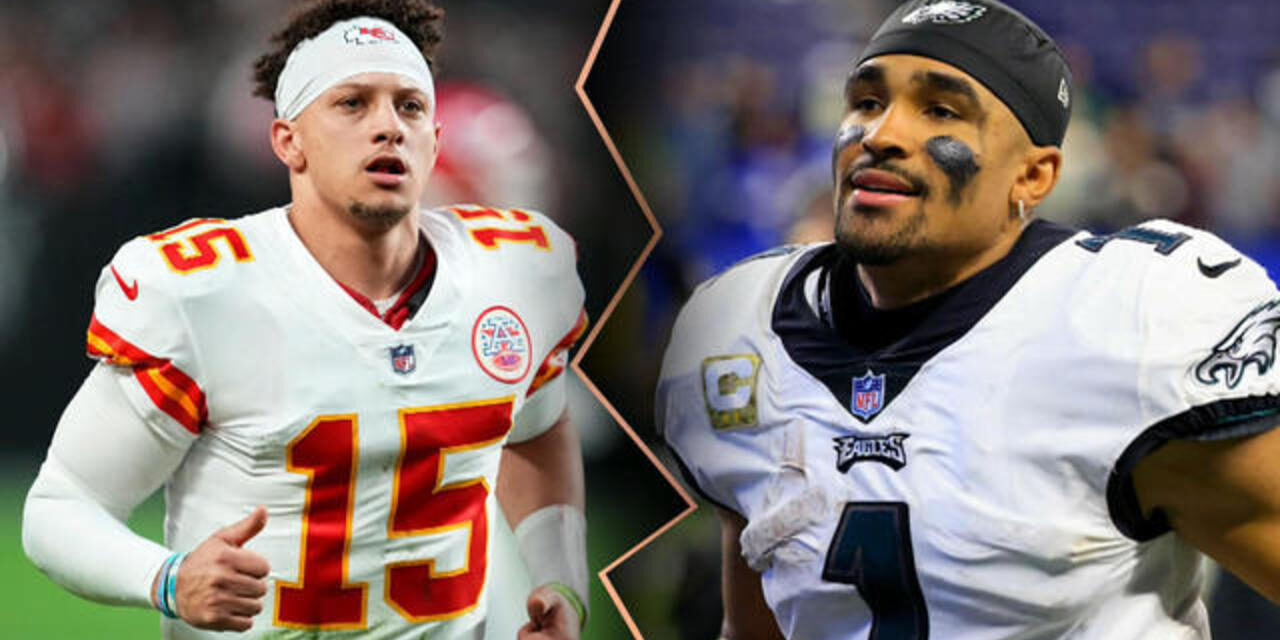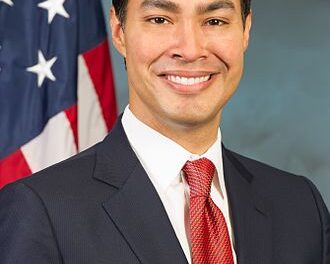
By Danny R. Johnson – National News Editor
WASHINGTON, DC – The number of Black quarterbacks have soared in the NFL over the past 25 years, and it was only a matter of time before the two of them faced each other in the Super Bowl.
This past Sunday’s championship game pitted the Kansas City Chiefs’ Patrick Mahomes against the Philadelphia Eagles’ Jalen Hurts. Only seven Black quarterbacks have played in a Super Bowl, and just three—including Mahomes—have won. That a record 11 NFL teams had Black starting quarterbacks on the opening day of the current season suggests that matchups like this year will soon be commonplace. But the fact that no such game has taken place before Super Bowl LVII underscores the plight of the Black quarterback for most of the NFL’s century-long history.
Like Black Americans in general, Black players in the NFL have long struggled to have their talents and aspirations taken seriously. In 1920, Fritz Pollard became the first Black quarterback in what was then known as the American Professional Football Association. Pollard led the Akron Pros to the league championship in his rookie season. But in 1934, the NFL banned Black players at the initiative of the former Washington owner George Preston Marshall, who once said, “We’ll start signing Negroes when the Harlem Globetrotters start signing whites.” The ban remained in place for 12 years.
When the NFL reintegrated in 1946, the prevailing assumption was that Black athletes weren’t intelligent enough to play quarterback. Run and tackle? Yes. Be the face of a franchise and give direction to other men? No. In his 2022 book, “Rise of the Black Quarterback: “What It Means for America,” the sportswriter Jason Reid interviewed the former NFL player John Wooten, who co-founded the Fritz Pollard Alliance, an organization dedicated to creating equal opportunities in the NFL. Wooten told Reid: “Your quarterback is the guy everyone was supposed to follow on the field. But you have these coaches who not only thought we couldn’t play there because we supposedly weren’t smart enough, which was just racist and ridiculous, but the leadership part of it was even a bigger problem for them. They couldn’t see us being the leaders of teams all over the league. You looked back then and didn’t see any of us at quarterback. Even the few guys who did break through a little didn’t get opportunities. And they didn’t last long.”
That was true of Marlin Briscoe, professional football’s first Black quarterback in the modern era. Briscoe was slated to play defense for the Denver Broncos in 1968, but the Broncos’ offense was in such disarray that then-coach Lou Saban gave Briscoe a shot at the coveted signal-caller position. Briscoe excelled, leading the team in passing yards and touchdowns. Despite his success, the Broncos gave him little playing time the next season; he later asked to be released. Briscoe finished his eight remaining years in the NFL as a wide receiver, illustrating the common practice of Black athletes being forced to change positions because they weren’t going to get a fair shot at playing quarterback.

Also underappreciated was Warren Moon, now the only Black quarterback in the NFL Hall of Fame. After going undrafted following a spectacular career at the University of Washington, Moon opted for the Canadian Football League. Only after Moon dominated the CFL by winning multiple championships did the NFL seek him out. He flourished for 17 years as one of the most prolific passers in league history.
The current landscape is much more welcoming than what Briscoe and Moon experienced. However, today’s Black quarterbacks are still subject to the same stereotypes and double standards that afflicted their predecessors. Hurts, for example, faced a lot of nonspecific criticism before this season began. Influential commentators hinted that Eagles insiders were “not very comfortable” with him and mused about “what his ceiling is” and whether “he’s already closer to reaching it than most would like to admit.” All quarterbacks are second-guessed, but the supposed discontent about Hurts, in his second season as the Eagles’ full-time starter, was unusually vague.
Let us not forget the fierce and competitive Doug Williams. On January 31, 1988, Washington Redskins quarterback Doug Williams engineered a 42–10 rout over the Denver Broncos, whose quarterback John Elway led. Williams completed 18 of 29 passes for 340 yards with four touchdown passes. All four touchdowns were thrown in the second quarter, which set a Super Bowl record for most touchdowns thrown in a single half, let alone a quarter. He was named Super Bowl MVP for his efforts, making him the first African-American quarterback to win a Super Bowl and be named its MVP. He broke the Super Bowl single-game record of 331 passing yards set in 1985 by Joe Montana, who broke Williams’ record the following year with 357. Williams tied the Super Bowl single-game record for passing touchdowns set by Terry Bradshaw in 1979, which Montana surpassed with five in Super Bowl XXIV. Williams’ 80-yard scoring pass to Ricky Sanders tied the Super Bowl record for the most extended access, set by Jim Plunkett’s throw to Kenny King in 1981; it was broken in 1997 by Brett Favre’s 81-yard pass to Antonio Freeman for the longest Super Bowl play from scrimmage.
The Baltimore Ravens quarterback Lamar Jackson is the fourth Black quarterback to win the league MVP, but if some NFL decision-makers had it their way, he never would have played quarterback at all. Despite winning a Heisman Trophy at the University of Louisville, Jackson was asked to run drills as a wide receiver at the 2018 NFL scouting combine. An anonymous defensive coordinator told The Athletic last summer that if Jackson “has to pass to win the game, they ain’t winning the game.”
Another team with a Black quarterback went out of its way to express distrust in him. The Arizona Cardinals initially put a “homework clause” in Kyler Murray’s recent $230.5 million contract extension. The clause stipulated that Murray had to study game material for four hours a week without being distracted by the TV, internet, or video games. If Murray violated the clause, he was at risk of defaulting on his contract. After intense public criticism, the Cardinals removed the clause, which was in line with the old perception that Black athletes weren’t smart or disciplined enough to play the marquee position.
None of this minimizes the significance of Black NFL players’ progress. But the history that Mahomes and Hurts have made in Super Bowl LVII is also a reminder that progress hasn’t come easily.




